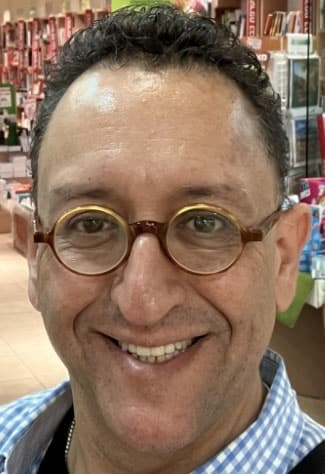My first trip to Israel was a six-week summer program for high school
students. I have very clear memories of my first Shabbat in
Jerusalem, especially the afternoon program conducted by our counselors. The
program was a mock talk show where the host would interview three different
individuals all leading Jewish lives. After the interviews, we were divided
into three groups, each having the dubious task of presenting one of the
three positions as being “the best and most useful way of life to the Jewish
people.”
The first interview was with a young Israeli named Koby. A son of Holocaust
survivors, Koby grew up on a secular kibbutz, where he learned the Zionist
values of working the soil of Israel. On his 18th birthday, Koby enlisted in
the Israel Defense Forces’ (IDF) elite paratrooper brigade, where he served
as a company commander. Asked how he understood Judaism, he responded, “My
parents are Holocaust survivors. They came from a place where nobody
defended them. My entire Jewish identity is wrapped up in my obligation to
defend the Jewish State.”
Asked if he or his family observe any elements of Jewish tradition, he
answered, “We live in Israel, we work the land and I now spend my life
defending our right to be Jewish. Is there any greater reflection of Jewish
tradition?”
The second interview was with a young lady named Rachel. Also a daughter of
Holocaust survivors, Rachel’s life took a very different direction than
Koby’s. Rachel, 24, was married at the age of 18 and settled in B’nei B’rak,
a city with a heavy concentration of ultra-Orthodox Jews. Rachel was the
mother of five children and looked forward to building an even larger
family. Her husband, Moshe, was a full-time Yeshiva student and, having
received an exemption from IDF service, studied Torah day and night.
Asked to explain her Jewish identity, Rachel responded, “Being the child of
Holocaust survivors, I know what happened to our people in Europe. We were
alienated from Jewish tradition, seeking secular European lifestyles instead
of maintaining Judaism. My husband and I fear this trend toward secularism
again here in Israel. That is why we have committed ourselves to living a
strictly observant lifestyle, building a large family and studying Torah.”
Asked how she felt about her husband’s exemption from military service,
Rachel said, “My husband defends the spiritual heritage of the Jewish State.
Without active Torah study, we have nothing to defend here.”
The third and final interview was with Abraham Schwartz. He was a successful
businessman who lived with his family in New York City. Active in his
synagogue, Abraham considered himself a “traditional Jew.” His financial
success in business afforded Abraham the opportunity to support many Jewish
causes. His most generous giving was toward Israel.
Asked how he felt about living in the Diaspora vs. Israel, Abraham
responded, “I feel very blessed to be able to support a variety of causes in
Israel. I believe that my philanthropy toward Israel, and my leadership
positions in many organizations that motivate others to support Israel, are
equally, if not more important, than my actually living in Israel.”
Asked if he intended to move to Israel, he said, “As long as I am in the
financial position to help Israel from abroad, I believe that it is my
obligation to stay here and continue my fundraising activities on behalf of
Israel.”
We were then asked to choose between three positions: physical survival,
spiritual continuity or financial realities.
Both parshot Mattot and Masei raise these dilemmas by focusing on the
mitzvah of “settling the Land of Israel.” This mitzvah, a unique commandment
that centers our physical existence and identity on one small geographic
locale, raises numerous halachic, philosophical and practical issues that
occupy thousands of pages of Jewish literature. The discussion has become
more intense in the past 55 years, because the mitzvah of living in Israel
is no longer a theoretical construct.
So who’s the “best Jew?” Realities teach us that building a Jewish State is
a complex project, one that requires military strength, spiritual vitality
and financial security. So rather than choosing among the three, I would
prefer to say thank you to Koby, Rachel, Abraham and the populations they
represent. Each one, in his or her own unique way, is contributing to the
mitzvah of settling Eretz Yisrael. The challenge of contemporary Israeli and
Diaspora Jewry is to recognize that the continuity of the mitzvah and
privilege of settling Eretz Yisrael is contingent upon the creation of an
atmosphere where Koby, Rachel and Abraham learn to respect each other’s
differences, and learn to recognize each other’s contributions toward
building Jewish life.
Daniel Bouskila is rabbi of Sephardic Temple Tifereth Israel.




















 More news and opinions than at a Shabbat dinner, right in your inbox.
More news and opinions than at a Shabbat dinner, right in your inbox.